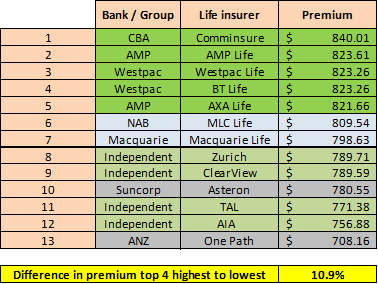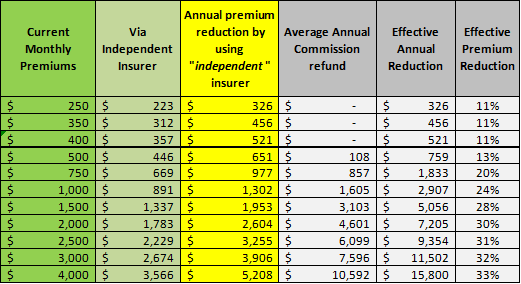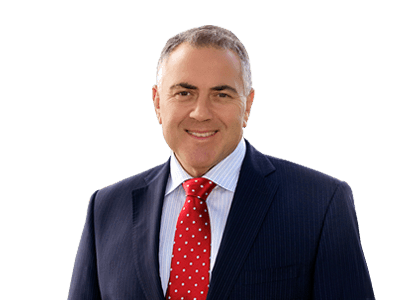INVESTMENT By Boyd Brown >>
HOW can you best set yourself up for retirement? This is a question we are asked constantly in our InvestorWise Financial business.
Refreshingly though, it is not just the baby boomers and ‘generation-X’ considering how they will finance and structure their retirement. We are seeing an increase in younger people, particularly members of ‘generation-Y’ contemplating their financial futures and looking for non-mainstream solutions.
A topical and increasingly popular option is a Self Managed Super Fund (SMSF). With the subject constantly featuring in finance industry news, with statistics about successful and sometimes not-so-successful results, I thought it best to get down to the basics of what an SMSF is all about. 
By definition, an SMSF is a form of superannuation fund allowing its members greater control over their retirement savings. The members run their fund for their own benefit and are responsible for complying with superannuation and tax laws.
In comparison, a traditional retail or industry super fund is managed on behalf of the member.
Establishing an SMSF is fast becoming one of the ‘must-have accessories’ as the baby boomer generation begins to exit the workforce en masse to enter retirement.
At our financial planning and consulting business, we are regularly approached with questions on whether an SMSF is a viable alternative for retirement savings.
The short answer is, it can be viable in the right circumstances, however it isn’t suitable for everyone.
INVEST TIME AND MONEY
As with any investment that can provide a successful result, managing an SMSF takes time and money – and you need to ensure you have both.
An increasing number of people are taking control of their super and the Australian Taxation Office (ATO) revealed at the end of June 2014 there were around 534,000 SMSFs in Australia. This represents a significant 25 percent growth in the past five years, equating to around $557 billion in assets and nearly one-third of all superannuation money held by Australians.
This makes SMSFs the largest sector based on assets, exceeding retail, industry and public sector funds.
This growth has been influenced by people wanting to ascertain an element of control through having a greater degree of involvement in the decision making process of their retirement fund.
Another reason people might consider an SMSF is if they have a desire to fund retirement using specific assets, such as direct shares or property, that are not available in more traditional super funds.
An SMSF can have up to four members and combining assets allows for greater flexibility and economies of scale.
Transparency of tax arrangements and succession or estate planning considerations also figure prominently as key factors in the decision making process. Inter-generational transfer of wealth is becoming a hot topic and an SMSF can offer greater certainty, especially when an insurance payout is made to a non-fund member.
In our business we dedicate time to counselling people to uncover their motivations and objectives, to ensure they are making an informed decision and not getting caught in the hype, or just wanting to keep up with their friends.
Acting in the best interests of our clients, we ensure they are fully aware of the pros and cons and all the alternatives.
First of all, to be eligible for the tax concessions available to a complying super fund, the trustees must ensure their fund complies with the ‘sole purpose test’. This means the SMSF must be maintained solely for the purpose of providing retirement benefits for its members.
Trustees must adhere to the Superannuation Industry (Supervision) Act (SIS Act). Separate to the sole purpose test, binding rules of this Act require trustees to always act honestly, money and assets of the fund must be kept separate from all other personal or business money and assets (this includes loans to members or their relatives) and must keep accurate records and lodge annual tax statements.
SMSFs are generally prohibited from acquiring assets from related parties. There are exceptions to the rules and they relate to business real property, used wholly for business purposes and listed securities.
While trustees can engage the services of other professionals, ultimate responsibility remains with the trustees. In cases of significant or sustained breaches, the ATO has the power to impose severe punitive penalties.
WHO SMSFS WORK FOR
Experience tells me there are two types of people who want to establish their own super funds.
First, there are those who have the time, knowledge and experience to manage their own monies. In most cases these people take on a more ‘hands on’ role with the management of their affairs by doing what is required to educate them.
Second, there are those who understand the benefits of running their own fund but do not have the time or desire to do it themselves. These people see the benefits in outsourcing assistance to manage some or all of the administration and investment process from a qualified professional such as a financial adviser, accountant or administrator, who will work in partnership with them.
It is difficult to quantify how much time is needed to manage each SMSF as it depends on the assets owned by the fund and whether the members are in accumulation or pension phase.
For example, if an investment property is an asset of the fund there will be management of tenants, rent and expenses.
Members need to establish how regularly they should review the fund, with an important consideration being liquidity or the ability to cover all expenses.
In our business, we mainly work with the second group, providing a total solution administration and investment service. Clients deal directly with our office and we coordinate all aspects of the process including the initial set up, preparation and implementation of the fund’s investment strategy.
We provide tailored investment advice, open bank accounts and liaise with the fund administrator and auditor on all issues, including the preparation and delivery of end-of-year tax statements for the fund.
Our services include undertaking a risk profiling exercise with each member of the fund, to determine his or her individual risk tolerance, before preparing an investment strategy. This should not be a ‘set and forget’ process and is revisited at least once a year.
TRENDING YOUNGER
As mentioned earlier, we are seeing an increase in interest from our ‘generation-Y’ clients who are placing more consideration into their retirement fund. They want to take back control of their super, which means we are seeing the minimum amount to establish an SMSF reduce.
While $250,000 seems an optimal level where there can be economies of scale, the establishing amount can be less.
We recently established a new fund with $100,000 for a couple where they undertook an aggressive contribution strategy over a short time frame to boost their fund balance.
One of the attractions of an SMSF is how you can use some funds to invest in property.
This can be done using what is called a Limited Recourse Borrowing Arrangement (LRBA). These arrangements have been growing in popularity as they can enable an SMSF to acquire investments it may not have the money to purchase outright.
There are some technical rules that make this type of borrowing different from any other type of lending and these need to be understood before implementing this strategy.
When considering using an SMSF for this purpose, the same questions need to be asked as you would with any other form of borrowing: Is it a worthwhile investment? Can the debt be fully serviced? Is there a borrowing strategy in place? And, most importantly, will it meet the retirement objectives of the members?
The opportunities, responsibilities and challenges that come with establishing an SMSF may be daunting for some people, so it is important to seek professional advice before you decide whether or not it is right for you.
As with all investment decisions, doing your homework is the key.
An SMSF is an investment in your financial future, so if you are prepared to take the time to understand how it can work for you and you follow the rules, the benefits should follow.
www.investorwise.com.au
Boyd Brown is the principal and financial adviser of Brisbane-based InvestorWise Financial. For 23 years InvestorWise has focused on helping individuals, families and business owners achieve financial freedom. Boyd Brown is an authorised representative of Financial Wisdom Limited and an associate member of the SMSF Professionals Association of Australia.
*
Note: The information contained in this article by Boyd Brown of InvestorWise is general in nature. While care has been taken in its preparation, no liability is accepted by Financial Wisdom, its related entities, agents and employees for any loss arising from reliance on this document. This document contains general advice. It does not take into account readers’ individual objectives, financial situation or needs. Readers should consider talking to a financial adviser before making a financial decision.
ends


 How to resolve AdBlock issue?
How to resolve AdBlock issue? 



